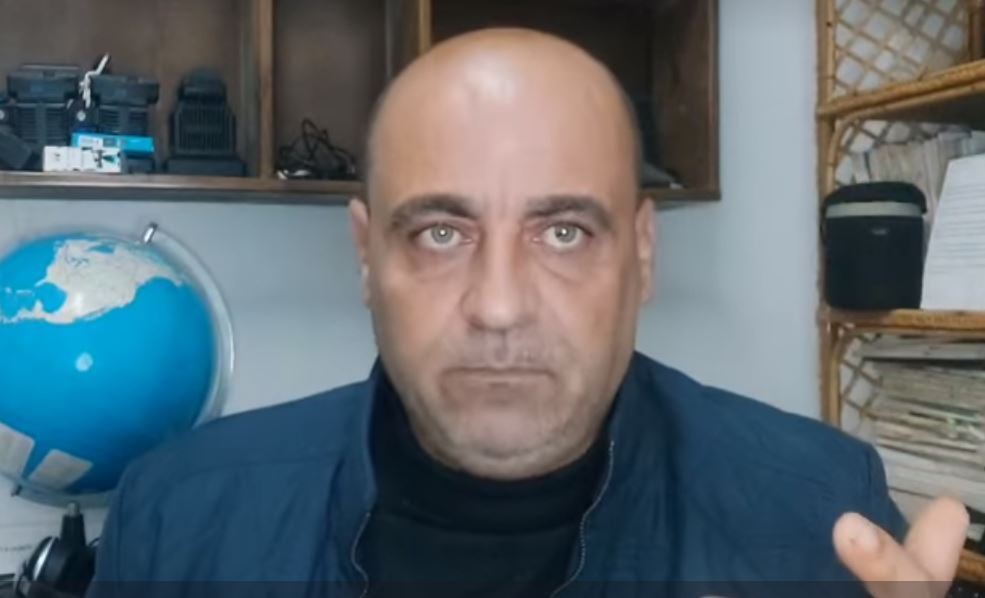Getting your Trinity Audio player ready...
Palestinian President Mahmoud Abbas’ decision to postpone parliamentary elections has drawn widespread condemnation from Palestinian factions, and from members of the lists of candidates who were eager to compete for seats in the new parliament.
Abbas last week announced that legislative and presidential elections scheduled for May and July respectively, which would have been the first Palestinian elections in 15 years, should not be held until Israel guarantees voting can take place in East Jerusalem.
7 View gallery
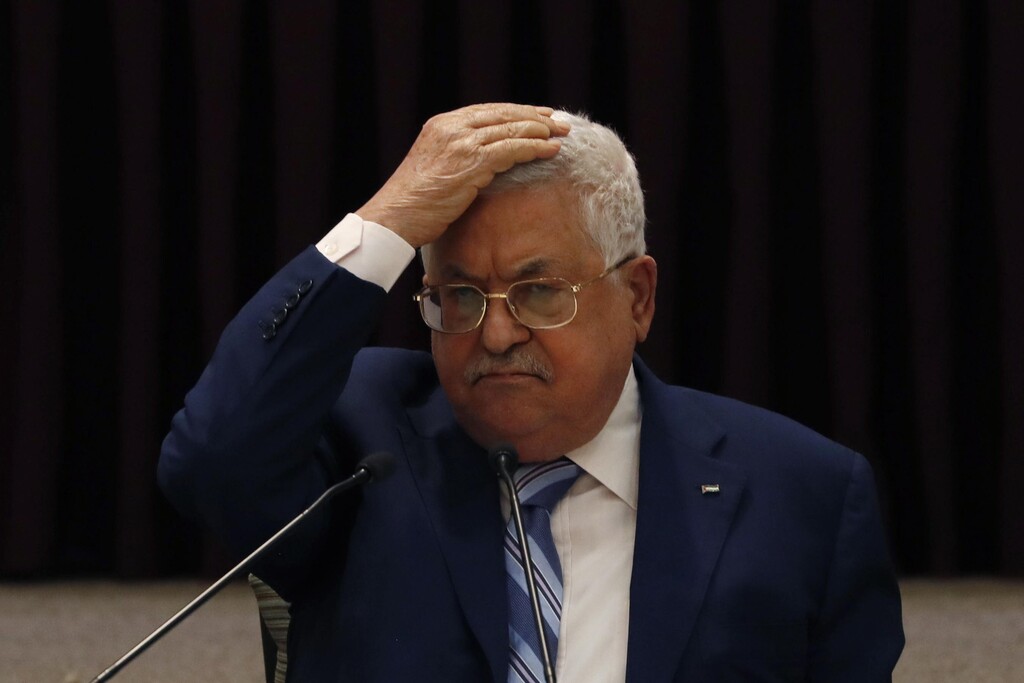

President Mahmoud Abbas gestures during a meeting with the Palestinian leadership
(Photo: EPA)
His decision to delay the elections will deepen the internal Palestinian division between Fatah and Hamas and will lead to political and security instability, critics say.
Nizar Banat, one of Abbas’ harshest critics, said unknown gunmen sprayed his house in Hebron in the West Bank with bullets last Friday.
His wife and newborn baby girl were in the house at the time of the attack.
The outspoken activist, who is the head of one of the candidates' lists running in the legislative elections, accused Palestinian security services of being behind the shooting because of his activism.
He told The Media Line that rampant corruption and nepotism must be stopped.
“Abbas didn’t have the legal ground to postpone the election. All he and those around care about is to fill their pockets and keep their positions,” he said.
Banat and his Freedom and Dignity list sent a letter to the European Union after the election delay, calling on the EU to stop financial aid to the PA.
“There is waste of public money, corruption and repression with European money. We haven’t had elections in 15 years and the EU should use the money to pressure Abbas,” he explained.
He says aid and funding to the PA’s apparatus is tantamount to blackmailing the Palestinians into accepting a political program that serves Israel.
Ahmad Rafiq Awad, president of the Center for Jerusalem Studies at Al-Quds University, told The Media Line that Abbas needs to show national unity before things get out of hand.
“The postponement should have been within an agreed-upon national consensus and program so that it would not be a decision that would lead to chaos, tension, disintegration and reinforcement of division,” he said.
Awad says that the Palestinian political arena is witnessing all of these signs, and warns that if there is no quick return to political participation and pluralism, then “our Palestinian society may witness a wave of severe tension and the consolidation of internal division.”
Abbas has said in the past that he wants to hold Palestinian elections to renew the legitimacy of Palestinian political institutions, including the presidency.
7 View gallery
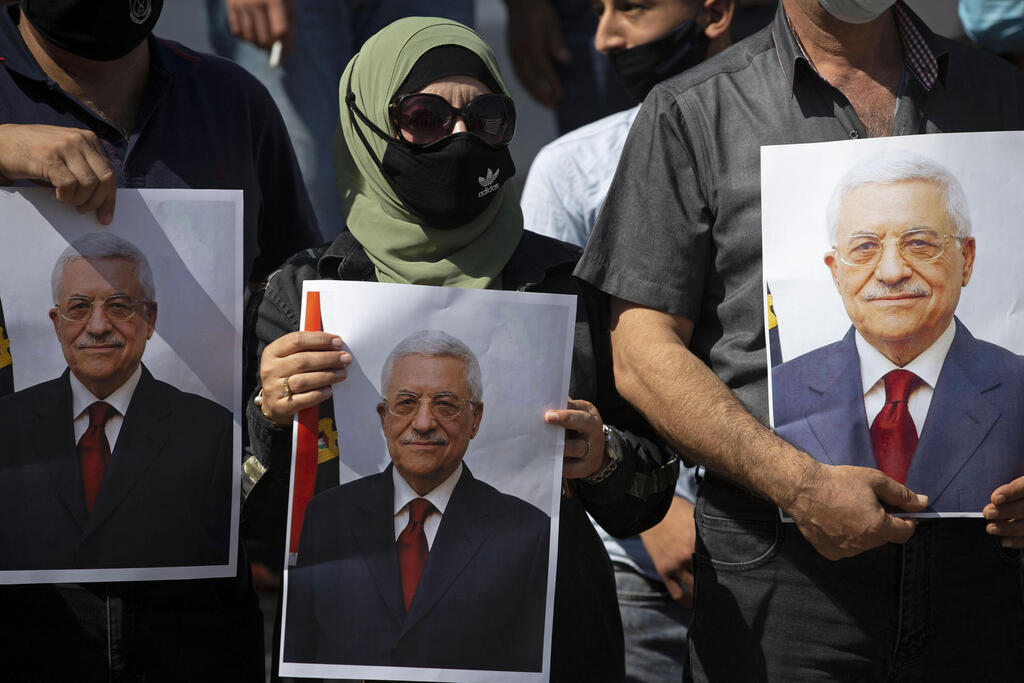

Palestinians hold pictures of Palestinian President Mahmoud Abbas during a support rally
(Photo: AP)
The international community was satisfied and accepted the delay, Awad says, which “reflects political hypocrisy.”
The European Union, for example, “supported us for the sake of the elections and the renewal of legitimacy,” he said. Awad said he wonders if now that there’s no election “has the president lost his legitimacy?”
Abbas’ decision to delay the elections comes amid deep division in his Fatah party. The rival Hamas movement, which rules the Gaza Strip, has blasted the decision.
Many of the political factions’ candidate's lists running for election to the Palestinian Legislative Council (PLC) have rejected Abbas’ announcement.
In 2006, there were only 11 lists running for the PLC, compared to 36 in 2021. Yoni Ben-Menachem, senior researcher at the Jerusalem Center for Public Affairs, told The Media Line it’s a sign that people want change.
“This is an indication that the Palestinian society wants a change to the regime. They want more democracy, less corruption. They want to see real change. Abbas won’t be able to oppress them for a long time,” Ben-Menachem said.
7 View gallery
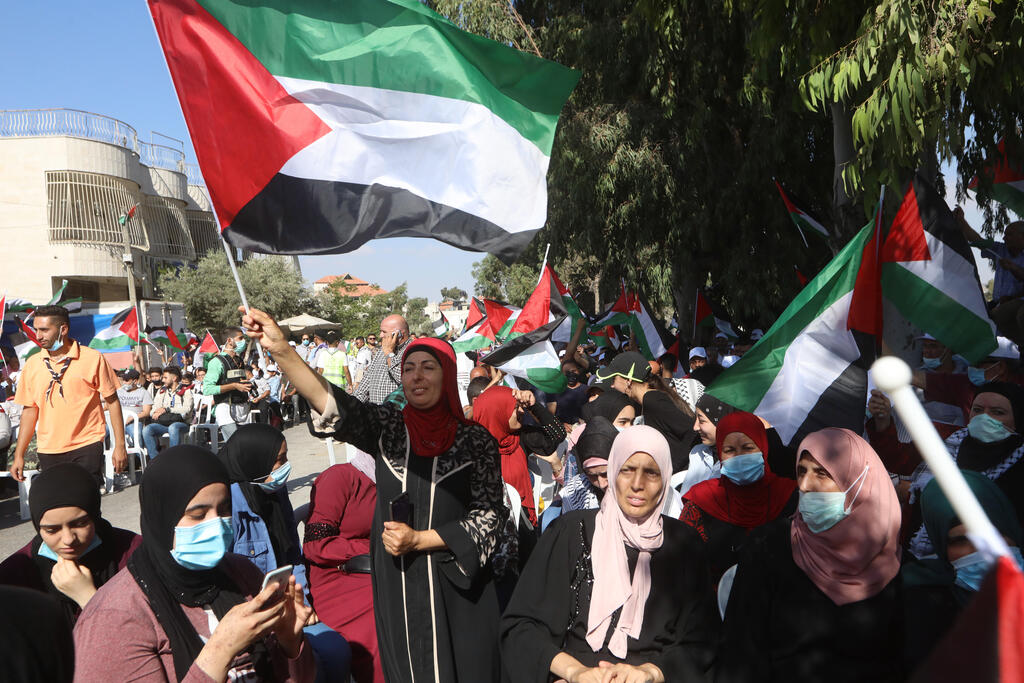

Palestinians wave national flags during a protest against the peace agreement to establish diplomatic ties between Israel and the United Arab Emirates
(Photo: EPA)
He says with Abbas’ decision to postpone the election, his nemesis Hamas sees an opportunity to try to further weaken him by destabilizing the West Bank, which is run by the PA.
“Of course, Hamas now sees Abbas as weak as a result of the postponement of the elections; it’s obvious that he became weaker because all the factions are against his decision and also opposition inside Fatah,” Ben-Menachem said, referring to Abbas by his nom de guerre.
The decision to indefinitely delay elections could rekindle hostilities between the Palestinians’ two largest factions.
Senior Hamas leader “Ismail Haniyeh clearly called to escalate the situation in East Jerusalem, the West Bank and in Gaza,” said Ben-Menachem.
Israel reportedly sent messages to the PA informing the Palestinians it was not going to allow them to hold elections in East Jerusalem. Ben-Menachem says that this was the life jacket the 86-year-old Abbas was desperately waiting for.
“He was hoping for it. This was the rescue, Israel rescued Abbas and Fatah from a big defeat in the elections by not allowing it in East Jerusalem. This was the ladder for him to come down from the tree,” he said.
7 View gallery
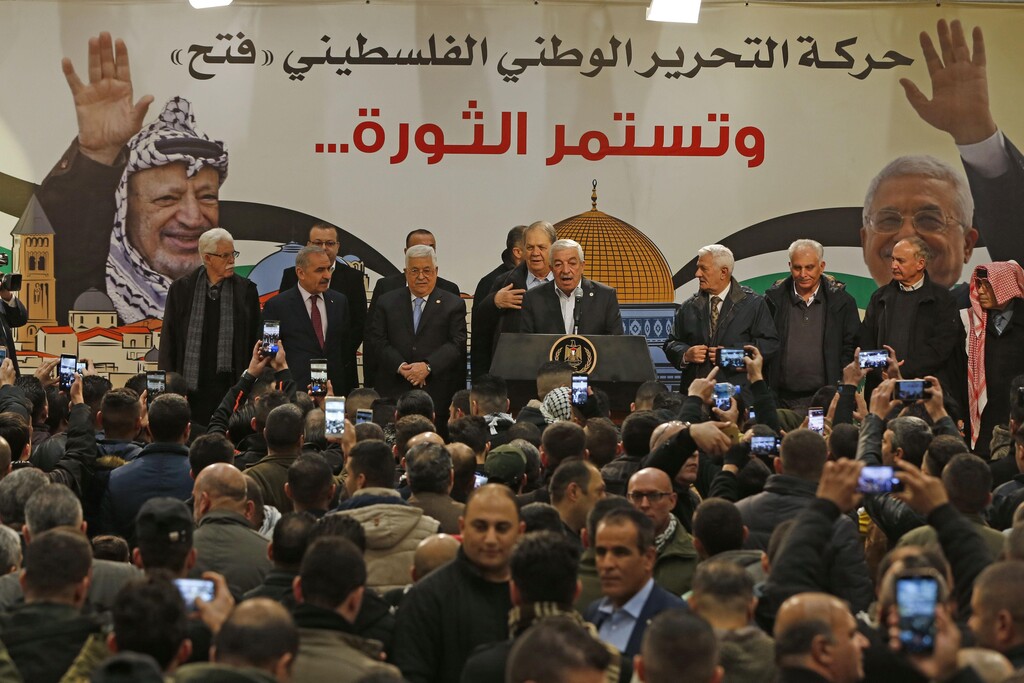

Palestinian President Mahmoud Abbas attends a ceremony marking the 55th foundation anniversary of the Fatah movement in the West Bank city of Ramallah. Dec. 31, 2019
(Photo: AFP)
The deep, and long-standing schisms within Abbas’ secular Fatah movement almost guaranteed a poor showing at the polls in new elections, threatening a repeat of 2006 when Hamas won a surprise victory in that vote, a result not recognized by Fatah.
But with the May 22 election day fast approaching, the Islamist Hamas movement seemed poised for a repeat of its shocking win 15 years ago, since Fatah was dealing with its internal split while Hamas was better organized.
The Islamist Hamas movement took power in Gaza in 2007 after deadly clashes with their rivals.
Abbas “didn’t anticipate that Fatah will be split, and that Marwan Barghouti will challenge him and support an independent list,” said Ben-Menachem, who adds that this was “a crucial moment that was not expected by Abbas.”
Abbas announced the parliamentary and presidential elections in January.
“He wasn’t bluffing, he was pressured by the European Union to hold an election otherwise he would not get the money, and also he wanted to show Joe Biden that he was going for democracy,” said Ben-Menachem.
In March, Israeli media reported that Abbas met in Ramallah with Nadav Argaman, the head of Israel’s internal intelligence agency, the Shin Bet, who warned him that if he went ahead with the election he would lose to Hamas.
7 View gallery
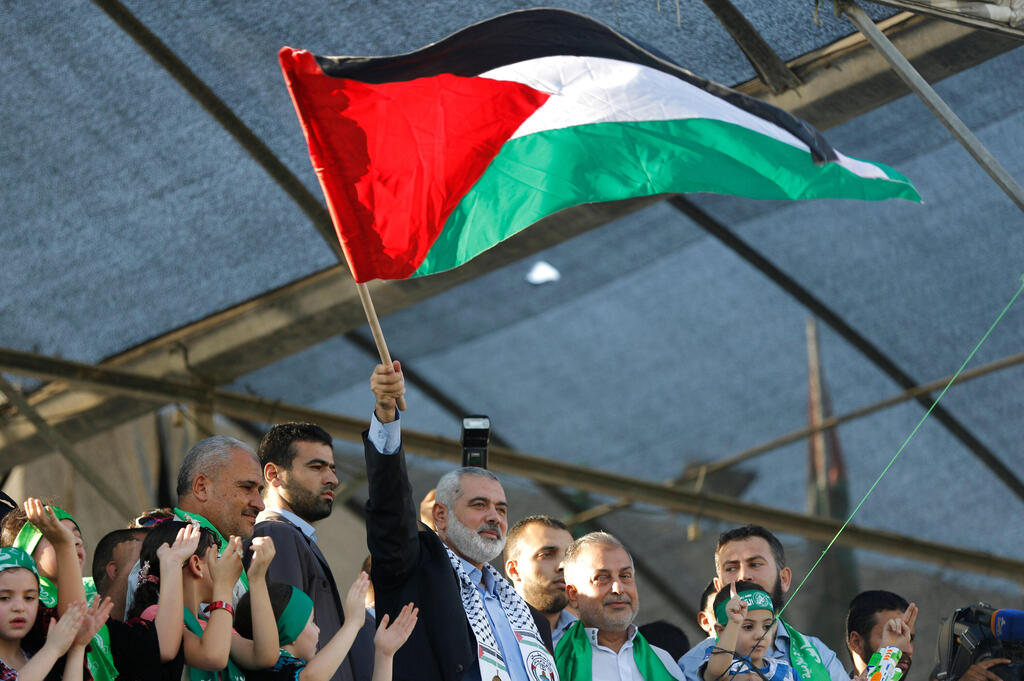

Hamas' top leader in the Gaza Strip Ismail Haniya (C) waves the Palestinian flag during a rally in Gaza City
(Photo: AFP)
Abbas is said to have dismissed a request by Argaman to call off the elections.
Many Palestinians accuse Abbas of being out of touch and dismissive of their needs, and they allege that he is insulated from the realities surrounding him. An adviser to Abbas told The Media Line on condition of anonymity that the PA president doesn’t trust many people and he doesn’t consult with his advisers on highly important and sensitive issues.
“Majed Faraj, Hussein Al-Sheikh and Azzam al-Ahmad, these are the ones that have Abbas’ ear,” the source, who still officially advises Abbas on “minor” issues, says. He adds that the president has grown frustrated with many of those around him.
“All he cares about now is to preserve the status quo,” he said.
Issa Amro, a Palestinian activist based in Hebron, told The Media Line that he wasn’t surprised with Abbas’ decision.
“I, like most Palestinians, believe that Abbas used the issue of holding elections in Jerusalem and the occupation’s position as an excuse to postpone the elections. We all know the results were going to be a wholesale change,” he said.
Amro accuses the Palestinian president of being in sync with the Israelis, saying that Abbas wants to preserve the status quo.
7 View gallery
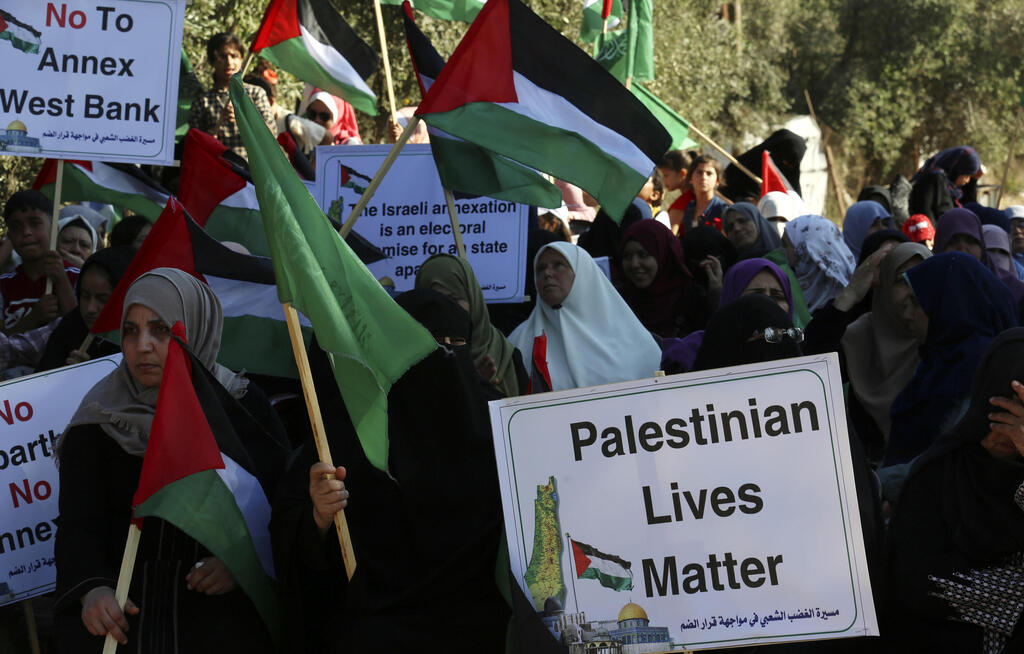

Hamas supporters wave organization's and national flags during a protest against Israel's plan to annex parts of the West Bank on the Palestinian side of Erez border crossing
(Photo: AP)
But Amro warns that if Abbas doesn’t set a new timeline for a vote soon, it will lead to turmoil.
“We have been living through security chaos for a while. There are armed groups that practice political and social terrorism against opponents and citizens,” he said.
He also says that postponing the elections will lead to the reluctance of Palestinians to participate in political life.
“I was frustrated and frankly I had a very negative reaction to the Palestinian political work and the instability of the Palestinian political future,” he said.
“We are heading towards anarchy and security chaos,” Amro warned.
Meanwhile, the activist Banat says the Palestinian people are ready for new elections and a new government. “Palestinians want true change; they want to see new faces with new agendas that serve them and treat them all equally,” he said.


